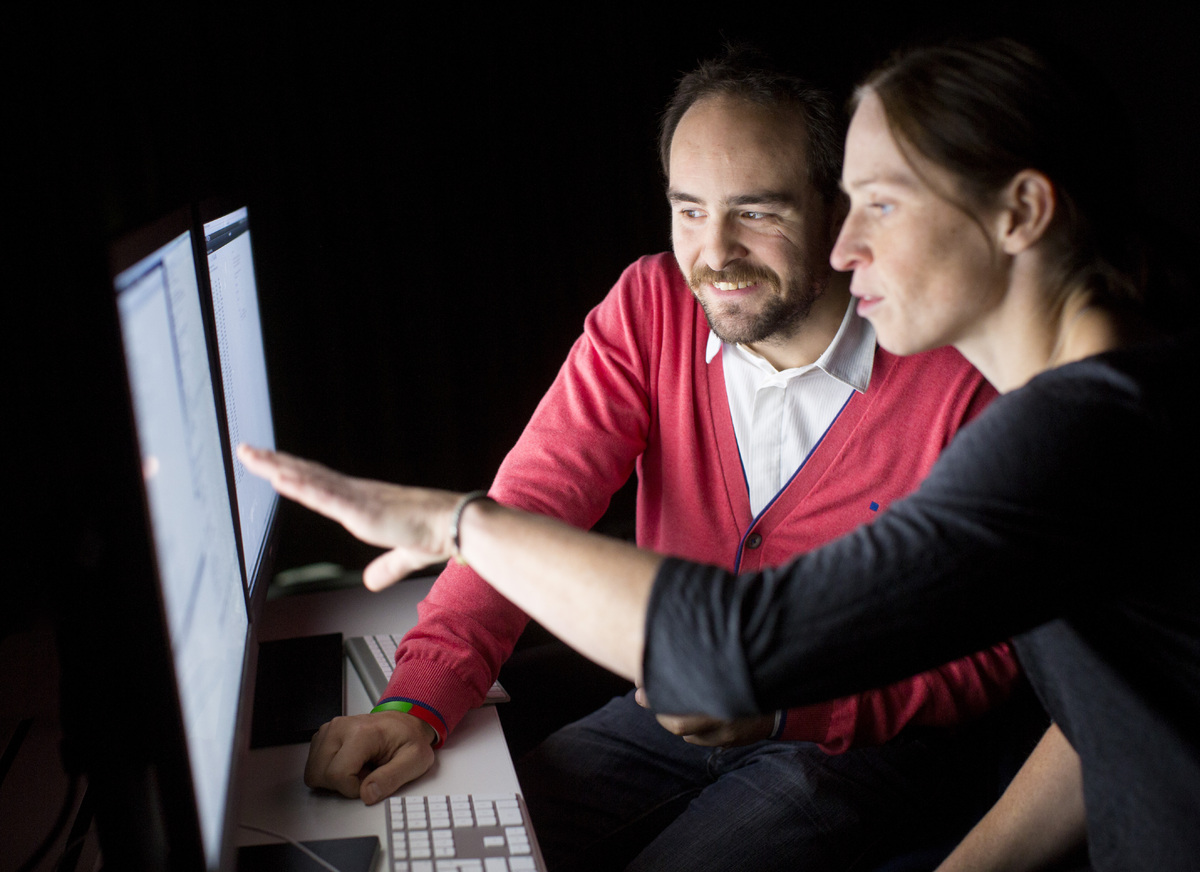Postdoctoral position in Machine Learning with applications in biodiversity research - Hiring in process/Finished, not possible to apply
This advert is not available!
Uppsala University, Department of Information Technology
The Department of Information Technology holds a leading position in both research and education at all levels. We are currently Uppsala University's third largest department, have around 350 employees, including 120 teachers and 120 PhD students. Approximately 5,000 undergraduate students take one or more courses at the department each year. You can find more information about us on the department of Information Technology website.
The Department of Information Technology is situated in the newly built Ångström House 10, which contains a visualization studio, a social robot lab, a maker space and 3D printing workshop. Researchers work in all areas of IT, from designing processers, through HCI and cybersecurity, to cancer research tools and methods for numerical analysis and machine learning. Active researchers in Artificial Intelligence include Thomas Schön and David Sumpter (machine learning); Ida-Maria Sintorn and Carolina Wählby (AI and image analysis); Ginevra Castellano and Katie Winkle (social robotics); and Matteo Magnani (data science and networks).
Uppsala University’s has a long tradition of successful research – among its alumni are 16 Nobel Prize laureates, including, most recently, Svante Pääbo. The University is unique when it comes to combining IT with wider research, from life sciences to the humanities, and this collaboration is currently facilitated by AI4Research and the Centre for Interdisciplinary Mathematics.
Duties
Research on fundamental models and methods in machine learning and their applications within biodiversity. The position is jointly with Tobias Andermann who leads the Biodiversity Data Lab (www.biodiversity.se) at the Department of Organismal Biology here at Uppsala University. The successful candidate will spend 3-4 days per week in the Department of Information Technology (with Zachariah and Schön) and 1-2 days per week at the Department of Organismal Biology (with Andermann).
The postdoctoral position involves developing and analyzing methods in machine learning and their application within biodiversity research. The work carried out during the employment will form an important contribution towards implementing solutions for evaluating land for its biodiversity value and potential. This is a crucial step towards combatting the global biodiversity crisis, as it enables governments and the industry to make sustainable and long-term biodiversity-positive investments.
The aim is to be able to investigate the use of these models for decision support and the position can also include work on decision algorithms. Technical keywords for the position include: probabilistic models, decision making algorithms (including reinforcement learning), deep learning, spatio-temporal processes, and causal modelling, possibly also Bayesian inference. The position can include teaching up to 20% depending on availability and interest. You are expected to be able to teach in Swedish or English.
Requirements
PhD degree within machine learning, signal processing, computer vision, computational statistics or another nearby and relevant field or a foreign degree equivalent to a PhD degree within machine learning, signal processing, computer vision, computational statistics or another nearby and relevant field. The degree needs to be obtained by the time of the decision of employment. Those who have obtained a PhD degree three years prior to the application deadline are primarily considered for the employment. The starting point of the three-year frame period is the application deadline. Due to special circumstances, the degree may have been obtained earlier. The three-year period can be extended due to circumstances such as sick leave, parental leave, duties in labour unions, etc.
The applicant must have a strong background in method development and the use of machine learning. The ability to make use of deep learning is required. Publications at leading conferences in machine learning is a strong plus. Excellent knowledge of oral and written English is a requirement.
Additional qualifications
Experience of interdisciplinary research is good. As a person, you are creative, thorough and have a structured approach. While the biodiversity data compilation will be handled by our collaborators from the Biodiversity Data Lab, it is of advantage if the candidate has experience or an active interest in biodiversity-related topics. When selecting among the applicants we will assess their ability to independently drive their work forward, to collaborate with others, to have a professional approach and to analyze and work with complex problems. Great emphasis will be placed on personal characteristics and personal suitability.
Application: The application must contain:
- A curriculum vitae (CV),
- A list of publications
- Up to five selected publications in electronic format
- A research statement describing your past and current research (max 1 page) and a proposal for future activities (max 1 page).
- Contact information for two references.
- A cover letter briefly describing your motivation for applying for this position and the earliest possible employment date (max 1 page).
About the employment
The employment is a temporary position of two years according to central collective agreement. Full time position. Starting date as agreed. Placement: Uppsala.
For further information about the position, please contact: the department or contact: Professor Thomas Schön (thomas.schon@it.uu.se) or Associate Professor Dave Zachariah (dave.zachariah@it.uu.se).
Please submit your application by 24 November 2023, UFV-PA 2023/3590.
Are you considering moving to Sweden to work at Uppsala University? Find out more about what it´s like to work and live in Sweden.
| Type of employment | Temporary position |
|---|---|
| Contract type | Full time |
| First day of employment | 2024-01-01 |
| Salary | Individual salary |
| Number of positions | 1 |
| Full-time equivalent | 100% |
| City | Uppsala |
| County | Uppsala län |
| Country | Sweden |
| Reference number | UFV-PA 2023/3590 |
| Union representative |
|
| Published | 18.Oct.2023 |
| Last application date | 24.Nov.2023 |

